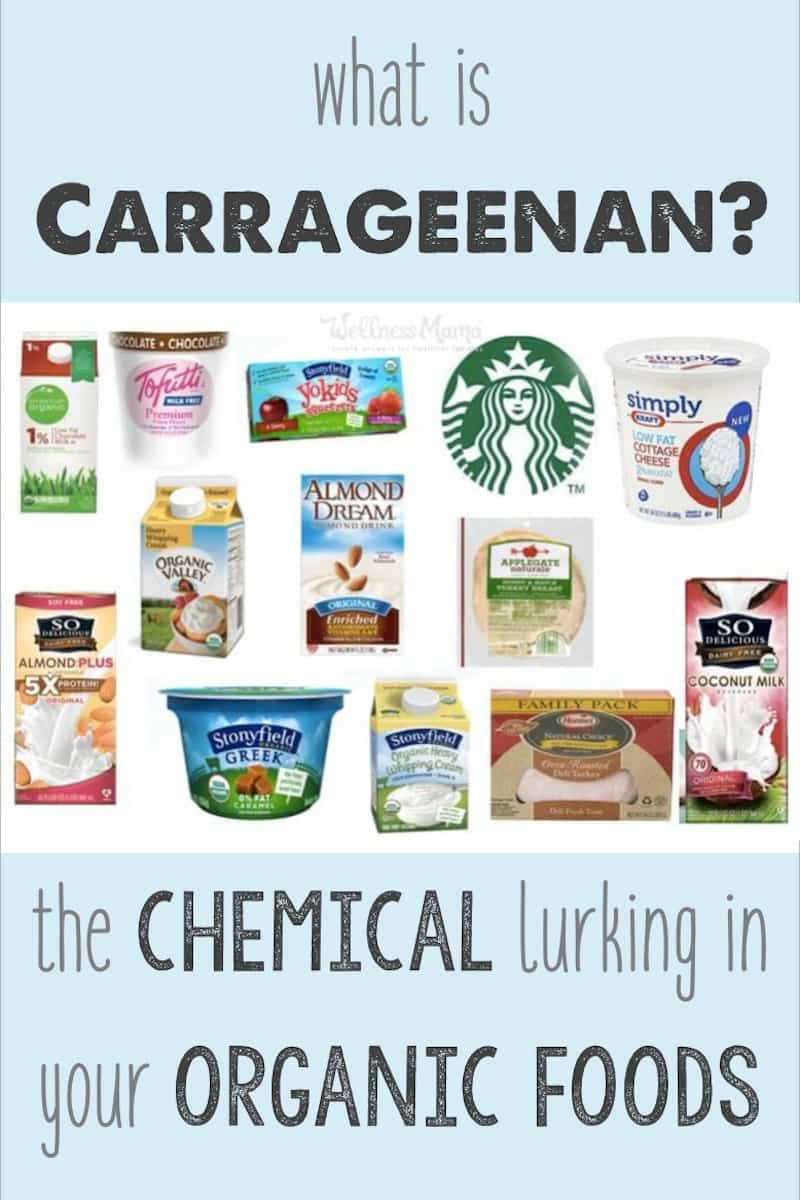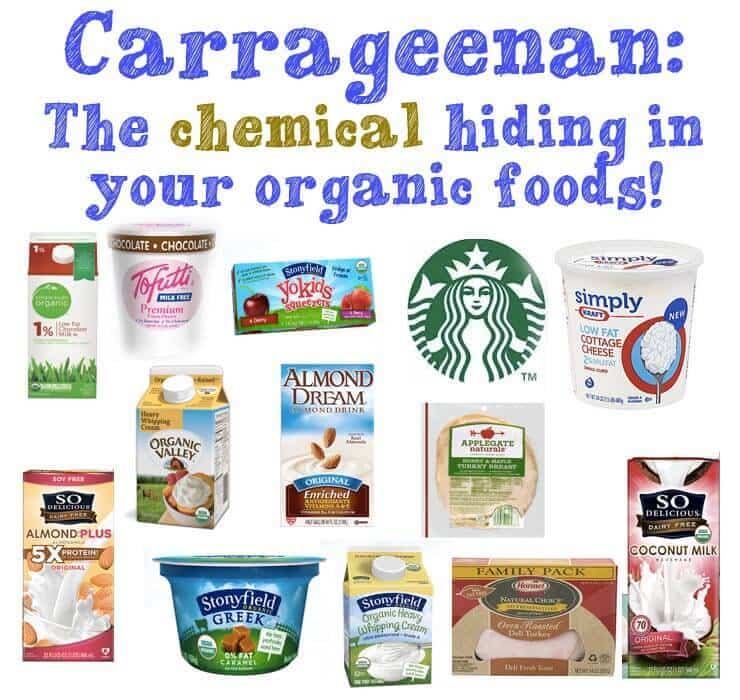If you’ve ever purchased store-bought almond or coconut milk, you may have noticed an ingredient called Carrageenan on the carton. This hard-to-pronounce little food additive is the reason I make my own homemade almond milk and homemade coconut milk, but it seems that there is a lot of confusion when it comes to this little known ingredient.
What is Carrageenan?
According to the Google:
Carrageenans or carrageenins are a family of linear sulfated polysaccharides that are extracted from red edible seaweeds. They are widely used in the food industry, for their gelling, thickening, and stabilizing properties.
Edible seaweeds, like kelp and Nori, right?
The Problem with Carrageenan
Not so much…
It is important to note that Carrageenan is not digestible and has no nutritional value. It is often used because it thickens and emulsifies products and it is often found even in organic and “natural” products.
It may seem that a simple product derived from seaweed should be non-menacing, and I wish it were. This article explains some of the potential problems:
Although derived from a natural source, it appears to be particularly destructive to the digestive system, triggering an immune response similar to that your body has when invaded by pathogens like Salmonella. The result: “It predictably causes inflammation, which can lead to ulcerations and bleeding,” explains veteran researcher Joanne Tobacman, MD, associate professor of clinical medicine at the University of Illinois School of Medicine at Chicago. She says the food ingredient irritates by activating an immune response that dials up inflammation. Her previous work showed a concerning connection between carrageenan and gastrointestinal cancer in lab animals, and she’s involved with ongoing research funded through the National Institutes of Health that is investigating carrageenan’s effect on ulcerative colitis and other diseases like diabetes.
The concern over food-grade carrageenan isn’t new. Beginning in the 1960s, researchers started linking the ingredient to gastrointestinal disease in lab animals, including ulcerative colitis, intestinal lesions, and colon cancer.
Joanne K. Tobacman, M.D., associate professor of clinical medicine at the University of Illinois College of Medicine is one of the leading researchers in the field of digestive health sheds some interesting light on the topic:
Dr. Tobacman said that her research has shown that exposure causes inflammation and that when we consume processed foods containing it, we ingest enough to cause inflammation in our bodies. She explained that all forms of carrageenan are capable of causing inflammation. This is bad news. We know that chronic inflammation is a root cause of many serious diseases including heart disease, Alzheimer’s and Parkinson’s diseases, and cancer.
Dr. Tobacman also told the board that in the past, drug investigators actually used carrageenan to cause inflammation in tissues in order to test the anti-inflammatory properties of new drugs. And she reported further that when laboratory mice are exposed to low concentrations of carrageenan for 18 days, they develop “profound” glucose intolerance and impaired insulin action, both of which can lead to diabetes.
To make things slightly more complicated, there are two forms: degraded and undegraded carrageenan. Technically, undegraded is approved for use in food, while degraded is not.
Degraded carrageenan is also called poligeenan. Chris Kresser looked more closely at the research, and found that many of the animal studies are done using poligeenan and not undegraded carrageenan, which further muddies the water.
Kresser makes this important distinction:
One important difference is that while poligeenan can cause cancer on its own when given in high enough concentrations, undegraded carrageenan has only ever been shown to accelerate cancer formation when administered with a known carcinogen. In other words, food-grade carrageenan has not been shown to cause cancer in animal models. That doesn’t necessarily mean it is is in the clear when it comes to cancer, but contrary to popular belief, it is not a known carcinogen.
When we separate the research on poligeenan and undegraded carrageenan, we find that it is still linked to increased intestinal permeability (leaky gut), intestinal irritation, and colon ulcers. Limited human studies showed an increase in inflammation and cell arrest.
Where is Carrageenan Found?
When you start reading labels, you’ll be amazed at the number of products that contain carrageenan! Most infant formulas do, as well as most store-bought milk alternatives. Many creams, creamers and dairy products also contain carrageenan.
I recommend checking out this shopping guide for avoiding foods with Carrageenan.
Our solution is to find carrageenan free store-bought products, or save money by making our own. If you’ve been consuming store bought almond or coconut milk that contains this additive, consider using these recipes and making your own:
Almond Milk Recipe
Coconut Milk Recipe
The Bottom Line
It may not be as bad as some sources portray, but there is evidence that it can be harmful, especially if consumed regularly.
Many people report reacting negatively with symptoms like digestive troubles, skin rashes, and other health problems.
The research is shaky on if it is a carcinogen or not, but I’m yet to see any research touting its health benefits. Our family avoids it for this reason, especially as it is just used for thickening products and does not serve a nutritional purpose.
Additional Reading
- Chris Kresser’s Research
- Public health and carrageenan regulation: a review and analysis
- Review of harmful gastrointestinal effects in animal experiments.
- Exposure to common food additive carrageenan leads to reduced sulfatase activity and increase in sulfated
- glycosaminoglycans in human epithelial cells
- Excitotoxins: The Taste That Kills
Have you ever consumed a food with carrageenan? Did I miss any foods that contain it? Leave a comment below with foods you’ve found that contain it and that we should watch out for…
This article was medically reviewed by Dr. Scott Soerries, MD, Family Physician and Medical Director of SteadyMD. As always, this is not personal medical advice and we recommend that you talk with your doctor.





Leave a Reply